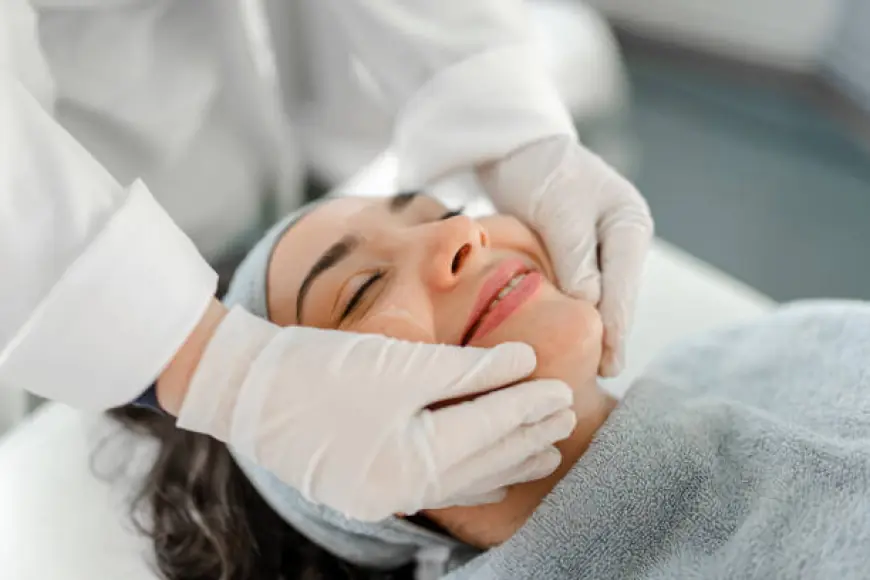Plastic Surgery in Riyadh: Pre-Op and Post-Op Care Tips
Contact your surgeon if you notice severe pain, excessive swelling, redness, fever, unusual discharge, or any sudden changes in your condition.

Undertaking plastic surgery is a significant decision that involves thorough preparation and diligent care after the procedure to achieve the best possible results. Whether you are considering cosmetic enhancements or reconstructive surgery, understanding the essentials of pre-operative and post-operative care is crucial for a smooth and successful journey.
plastic surgery in riyadh is increasingly sought after, thanks to the city’s access to advanced medical facilities and experienced surgeons. This blog provides comprehensive guidance on how to prepare yourself before surgery and how to care for your body afterward to ensure optimal healing and satisfaction with your outcomes.
Preparing for Plastic Surgery: Pre-Operative Care
Before the day of surgery, your body and mind need careful preparation. The pre-op phase is focused not only on physical readiness but also on mental and logistical organization.
Medical Evaluation and Consultation
A detailed consultation is essential to discuss your medical history, understand your goals, and assess whether you are a suitable candidate for the procedure. Your surgeon will explain what to expect, review risks, and outline necessary precautions. This step helps create a customized surgical and recovery plan tailored to your needs.
Medication and Lifestyle Adjustments
You may be advised to stop certain medications, supplements, or habits that could interfere with surgery or healing. For example, stopping smoking and avoiding alcohol consumption are critical, as these can impair blood circulation and delay recovery. Additionally, you might need to adjust medications such as blood thinners under medical supervision to reduce bleeding risks.
Physical Preparation and Health Optimization
Maintaining a balanced diet, staying hydrated, and boosting your overall health through moderate exercise can improve your body's resilience. You might also be asked to fast for a period before surgery, depending on the anesthesia requirements.
Mental and Emotional Readiness
Feeling confident and mentally prepared is as important as physical health. Surgery can raise anxiety, so discussing any concerns with your healthcare team or seeking counseling support can help manage stress. Some centers in Riyadh even offer pre-op tours or meetings to familiarize you with the surgical environment, reducing apprehension.
What to Expect on Surgery Day
On the day of your procedure, the medical team will guide you through pre-operative steps such as vital checks and anesthesia briefing. Following strict protocols ensures safety and comfort. It’s important to arrive well-rested, with someone to accompany you after the surgery for support and transportation.
Post-Operative Care: Supporting Healing and Results
The recovery period is vital for the success of your surgery. Following your surgeon’s instructions diligently promotes healing, minimizes complications, and improves final outcomes.
Managing Pain, Swelling, and Discomfort
After plastic surgery in Riyadh, patients typically experience some pain and swelling, which can be managed with prescribed medications. Applying cold compresses as advised helps reduce inflammation. Avoiding strenuous activities during this time prevents stress on the surgical site.
Wound and Incision Care
Keeping incisions clean and dry is essential to prevent infections. Follow the guidelines for dressing changes and avoid touching the surgical area unnecessarily. Your surgeon will instruct you on signs of complications to watch for, such as redness, excessive swelling, or unusual discharge.
Nutrition and Hydration
Eating a nutrient-rich diet that includes fresh fruits, vegetables, and protein supports tissue repair. Staying well-hydrated also facilitates detoxification and cell regeneration.
Wearing Compression Garments
For some procedures, wearing compression garments is recommended to control swelling, provide support, and help the body adapt to its new contours. These should be worn as directed for the best results.
Follow-Up Appointments and Long-Term Care
Regular follow-up visits with your surgeon allow monitoring of your healing progress and timely management of any concerns. Long-term care might include advice on lifestyle maintenance, skincare, or additional treatments.
Common Rehabilitation Techniques
Physical therapy, massage, and other rehabilitation techniques tailored to the surgery type can enhance recovery. These therapies improve blood circulation, reduce swelling, and maintain mobility, contributing to better outcomes.
Frequently Asked Questions
How far in advance should I start preparing for plastic surgery in Riyadh?
Start preparation at least several weeks before your surgery date to allow time for medical evaluations, lifestyle changes, and mental readiness.
What are the key things to avoid before surgery?
Avoid smoking, alcohol, blood-thinning medications, and certain supplements as advised by your surgeon to reduce risks during surgery and recovery.
How long does the recovery period usually last?
Recovery times vary by procedure but generally range from a few weeks to several months for complete healing.
Can I resume normal activities soon after surgery?
Light activities may resume within a week or two, but strenuous exercise and heavy lifting should be avoided for several weeks to allow proper healing.
What signs indicate I should contact my surgeon after surgery?
By following these comprehensive pre-op and post-op care tips, patients undergoing plastic surgery in Riyadh can greatly enhance their safety, comfort, and satisfaction, ensuring their transformation journey is both positive and rewarding.
What's Your Reaction?
 Like
0
Like
0
 Dislike
0
Dislike
0
 Love
0
Love
0
 Funny
0
Funny
0
 Angry
0
Angry
0
 Sad
0
Sad
0
 Wow
0
Wow
0

















































